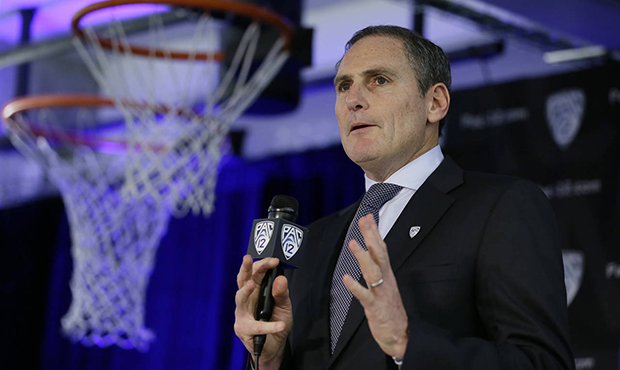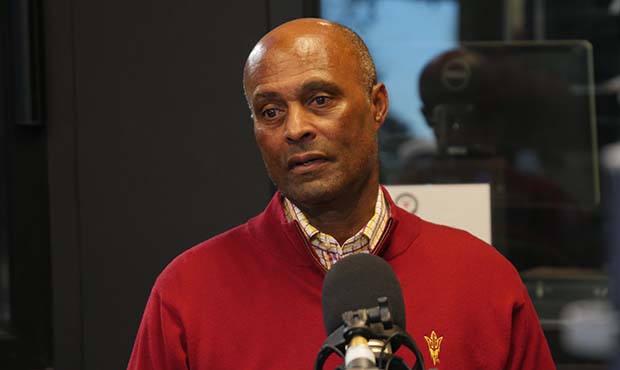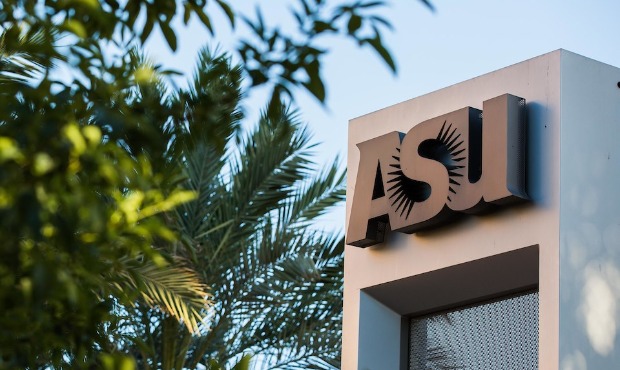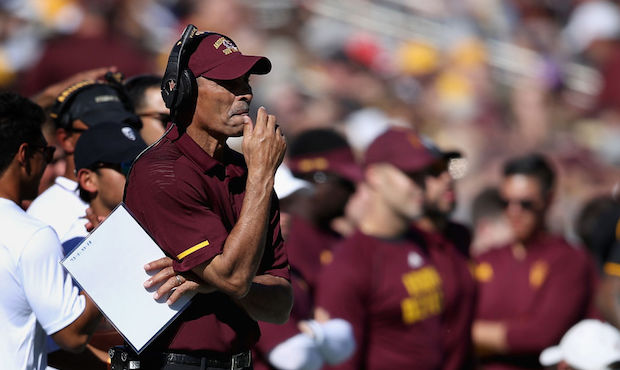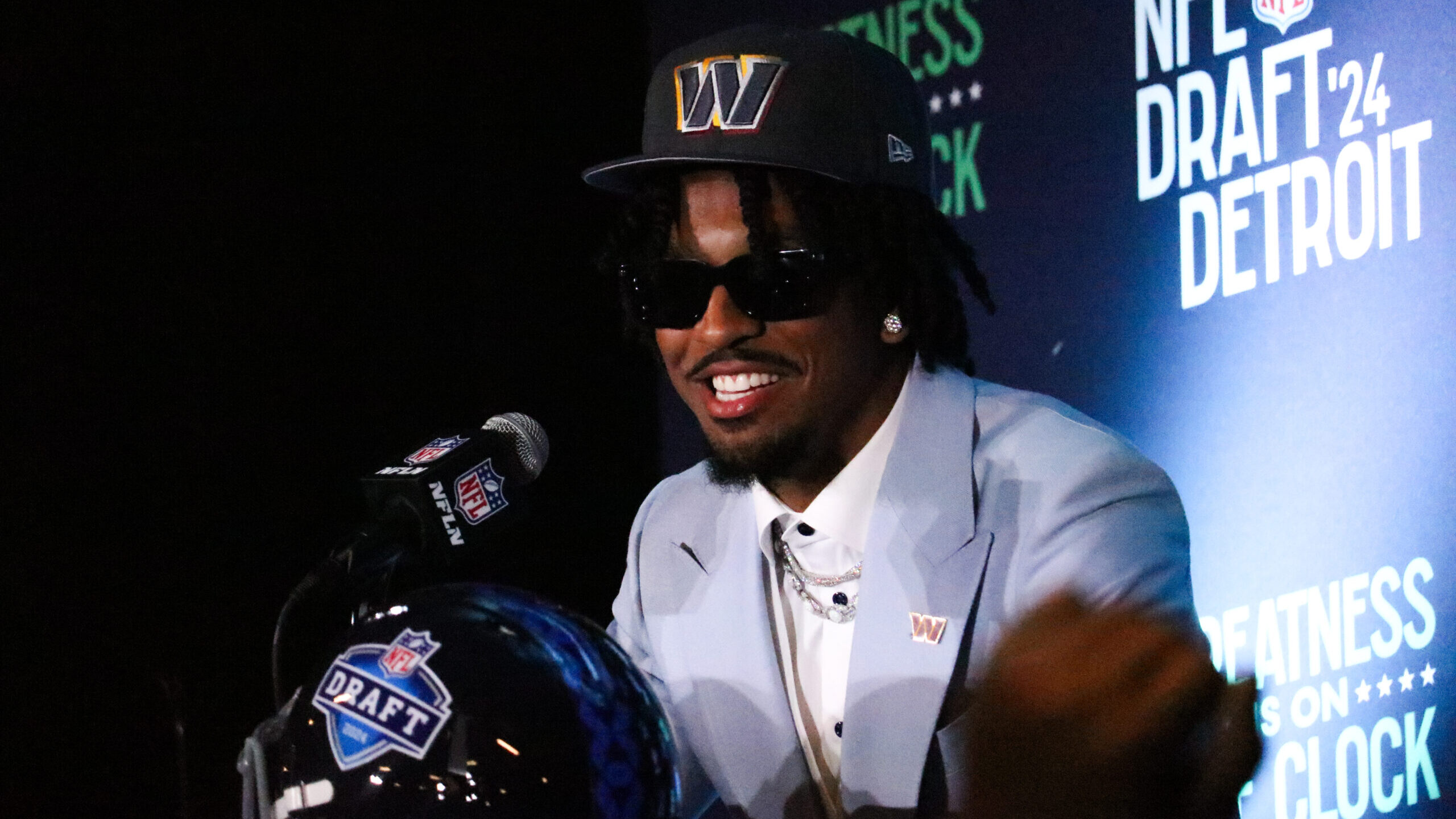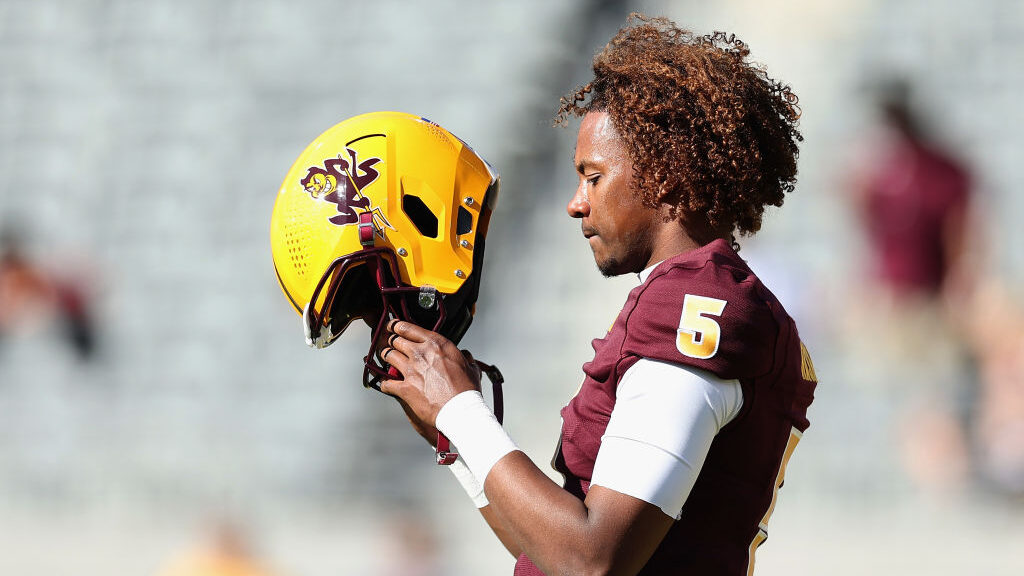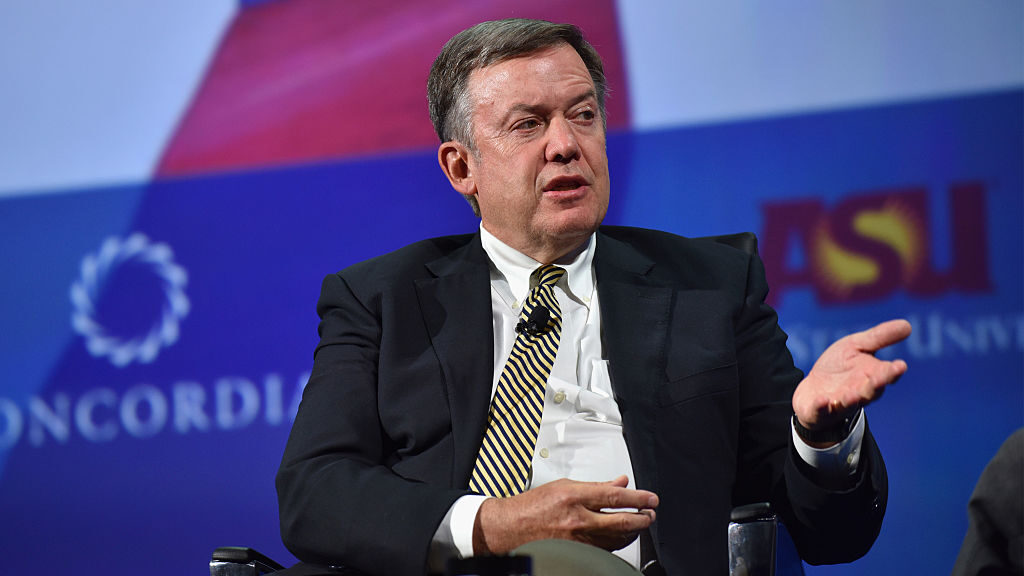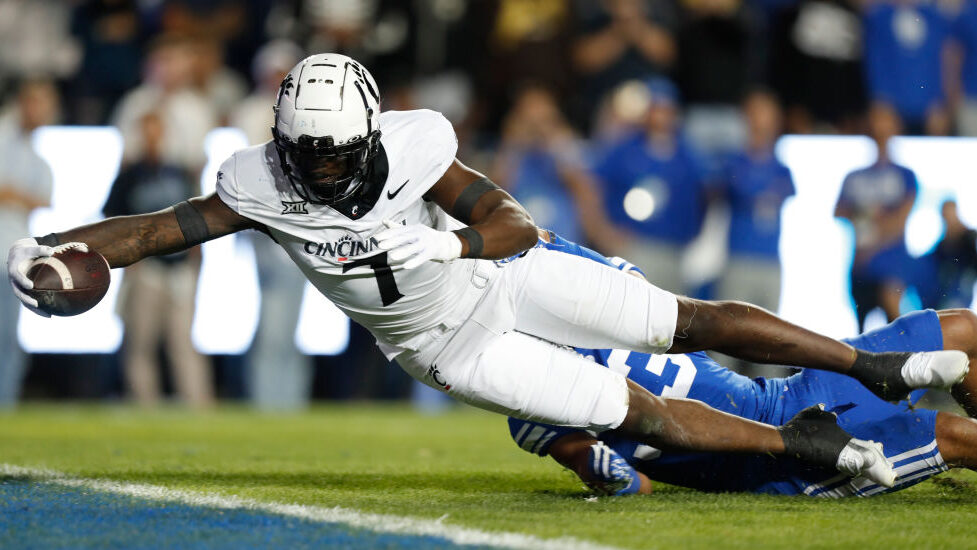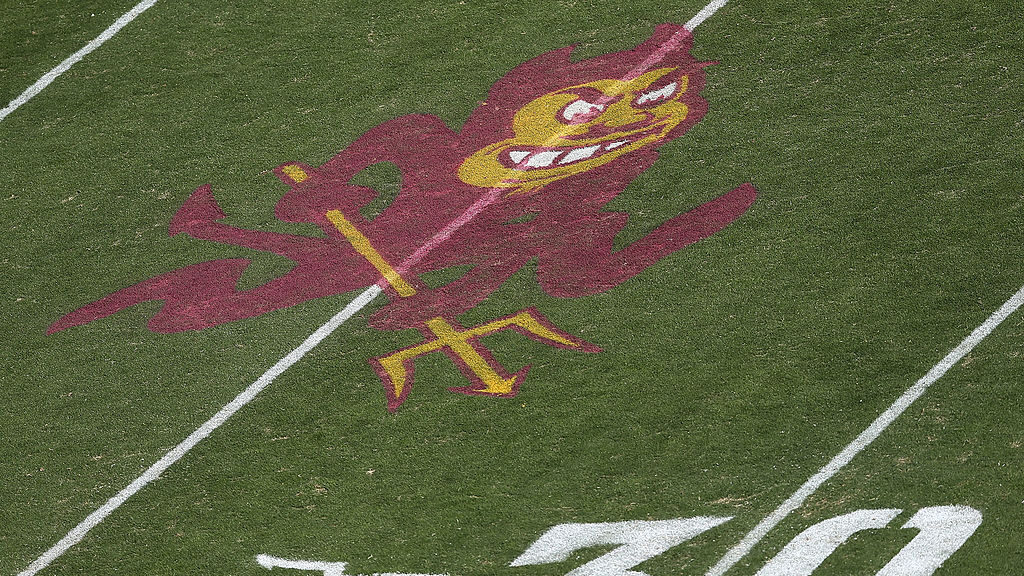ASU, Pac-12 doing right thing in time of reckoning for college football
Aug 12, 2020, 4:39 PM | Updated: Aug 13, 2020, 10:55 am
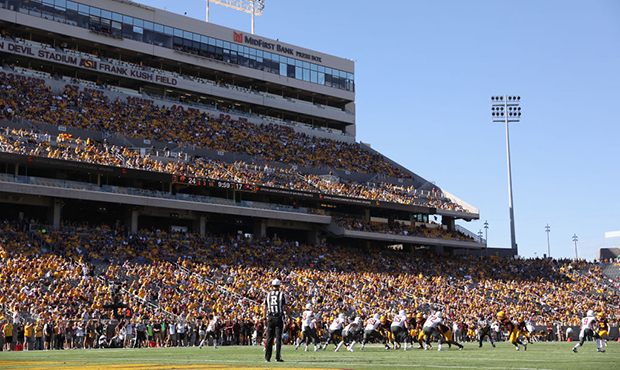
(Photo by Christian Petersen/Getty Images)
(Photo by Christian Petersen/Getty Images)
It’s easy for Arizona State to take the high road. Its football program is not an ATM or civic institution. It doesn’t print money or dominate the marketplace. It does not generate elite-level revenue or incur outrageous expenses. It is no longer paying Todd Graham’s buyout.
In the landscape of Valley sports, ASU football moves the meter, but only so much. It can afford to pull the plug on the upcoming football season.
But I’m proud of them nonetheless.
Their athletic director, Ray Anderson, hit all the right notes in his defense of the Pac-12’s decision. He said ASU was concerned with accountability, not liability. As a parent of a college student, he said exactly what I want to believe about our institutions of higher learning.
Anderson said he was deeply moved by new medical concerns attached to COVID-19 and the cardiovascular future of young athletes. He does not want an ASU alumni to drop dead from cardiac arrest sometime in the next decade because ASU was hell-bent on playing football in the peak of a pandemic.
The risk is not worth the reward. At least not in Tempe.
Still, Anderson exuded real leadership. His stance is reasonable and smart. His explanation was everything that college athletics lack at the moment. He focused on health and not wealth, which must be the path forward in college athletics. It also made Anderson an obvious choice if the NCAA wants to get serious and hire a new commissioner for the future.
This is an embarrassing time for college football. A regional sport has revealed a stark contrast in politics and priorities. If the majority of Power 5 conferences insist on playing football in the fall, staging a secession in protest, they will effectively destroy the sport. They will demolish any chance of holding a football season in the spring, an idea that is being improperly defamed and too easily brushed aside.
That’s because a spring football season will interrupt the gravy trains and the dynasties in progress. It will likely remove the upper crust from college football, blue-chip players who will opt out to prepare for the NFL draft, like Clemson quarterback Trevor Lawrence. It will greatly affect the blue-blood programs perennially stocked with NFL prospects.
But it will only level the playing field for everyone else. As one college football expert predicted, it could lead to some real underdog stuff, like a Cal-Iowa State national championship game. And what’s wrong with that? Why do all the established powers have to remain in power?
Look around. The schools barking the most about the postponement of college football are the schools that win the most, the schools that earn the most, the schools that spend the most, in communities that are most dependent on Division I football, easily swayed to short-term rewards.
They are also the same schools that egregiously contradict a university’s educational mission, spending wildly on stadiums and entertainment centers and assistant coaches to lure the recruits that fuel the entire machine, even if they rarely go to class.
The corruption is crystal clear to the brightest young minds attending any university that participate in the great sellout, a money-grab that mocks all a university stands for, undermining its most high-minded intellectual endeavors.
Alabama’s Nick Saban, among others, insists that football players would be safer competing on campus that wasting their time at home. That might be true. But this isn’t an either-or proposition. Those student-athletes won’t be at home if they’re not playing football, right? They’ll be in class performing and social-distancing as student-athletes. Or is that all sham?
College football screams for dramatic reform. The sport’s lack of leadership is debilitating and grotesque. The days of unpaid labor are over, and whenever college football returns, the players will have a new seat at the bargaining table. And without free talent stocking the sidelines, the arms race is effectively over in college football, the end of an era where assistant coaches and strength-and-conditioning gurus have become easy millionaires.
A day of reckoning has finally arrived for college football. A time when it’s good to be a program like ASU, still on the rise, unchained by debt and greed and warped priorities. Free to do the right thing.


